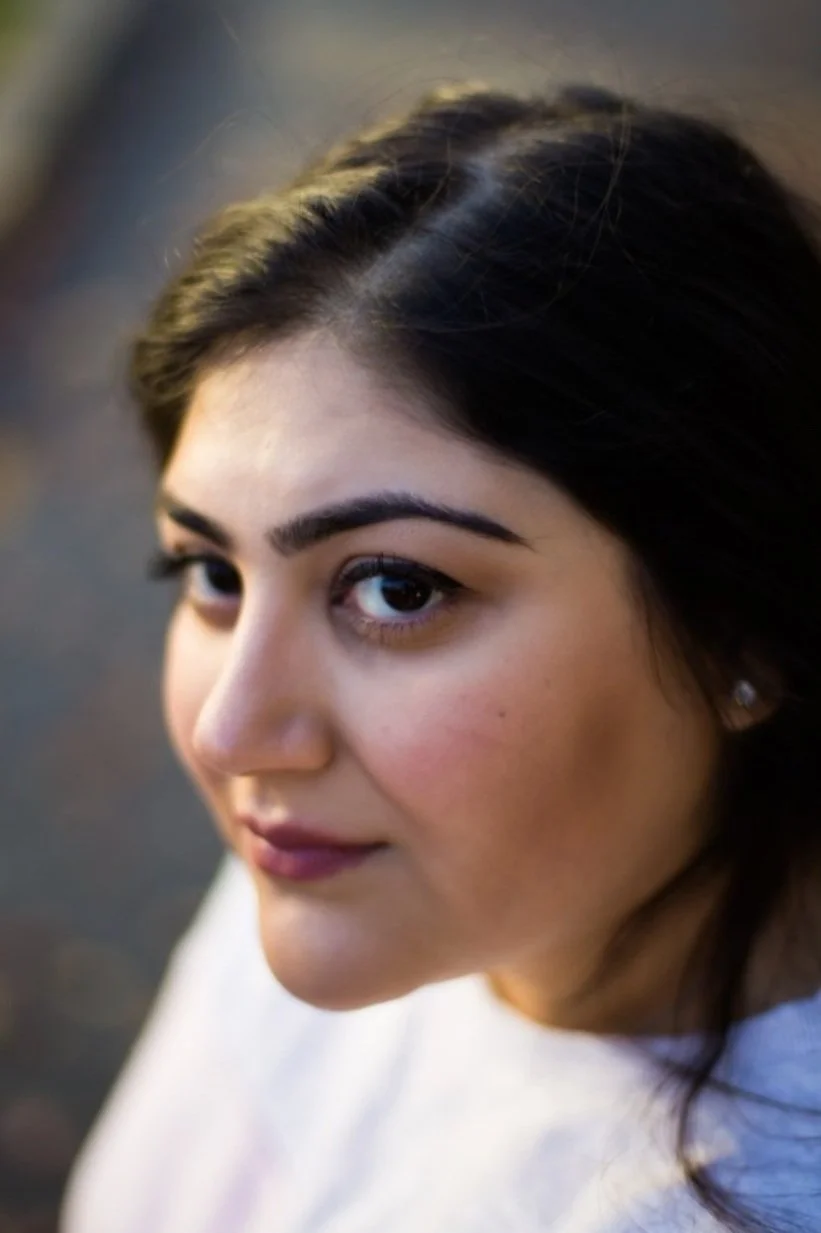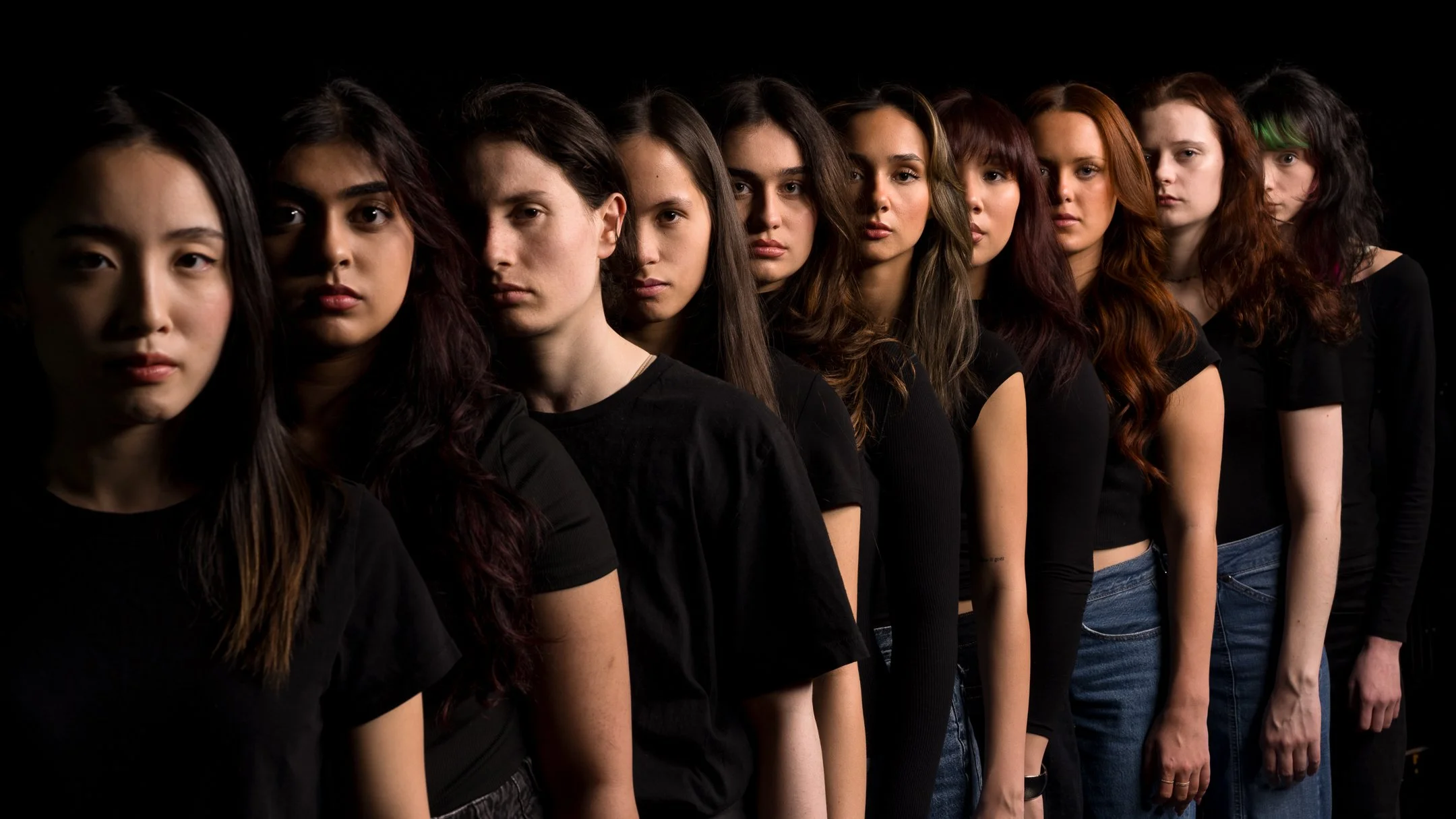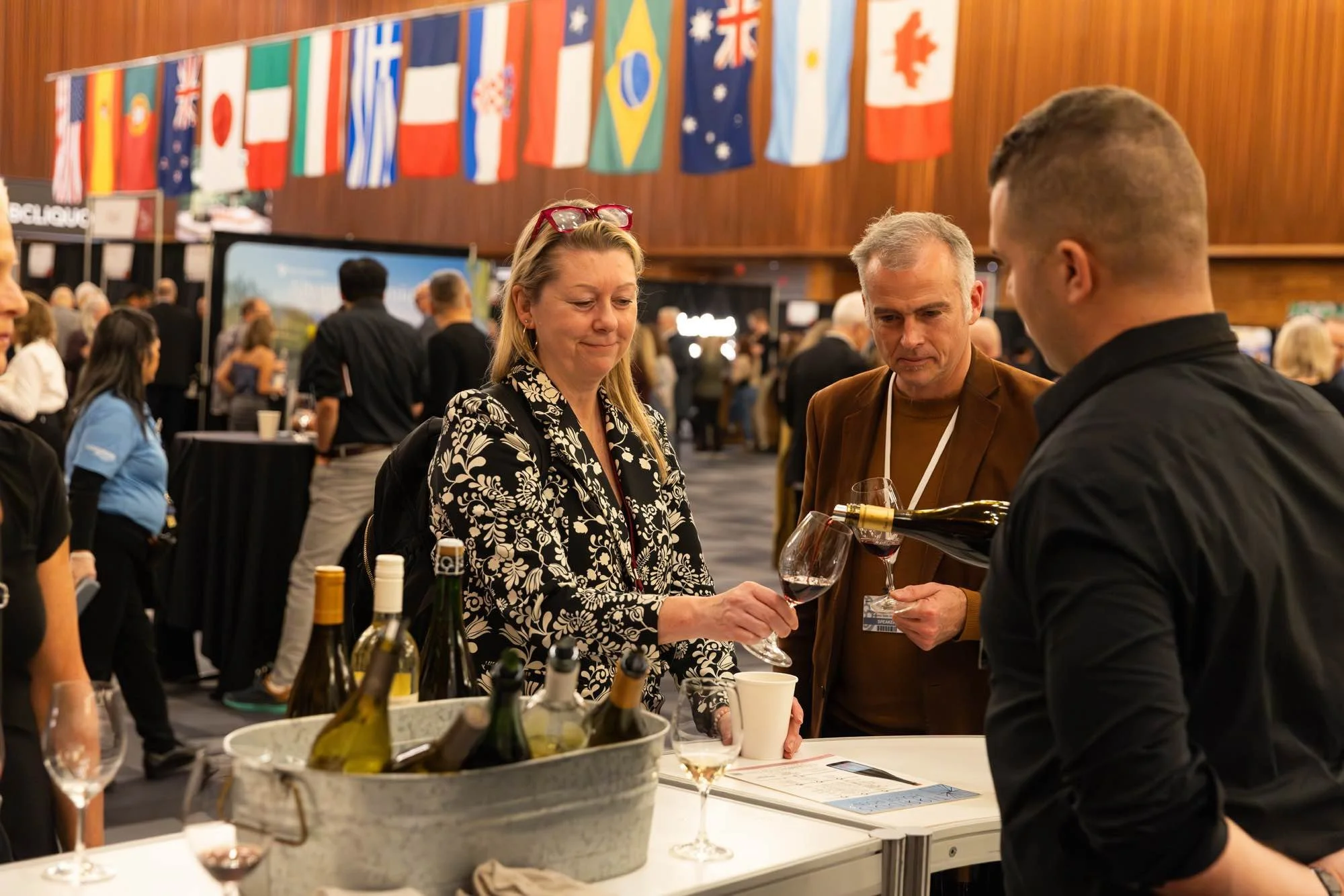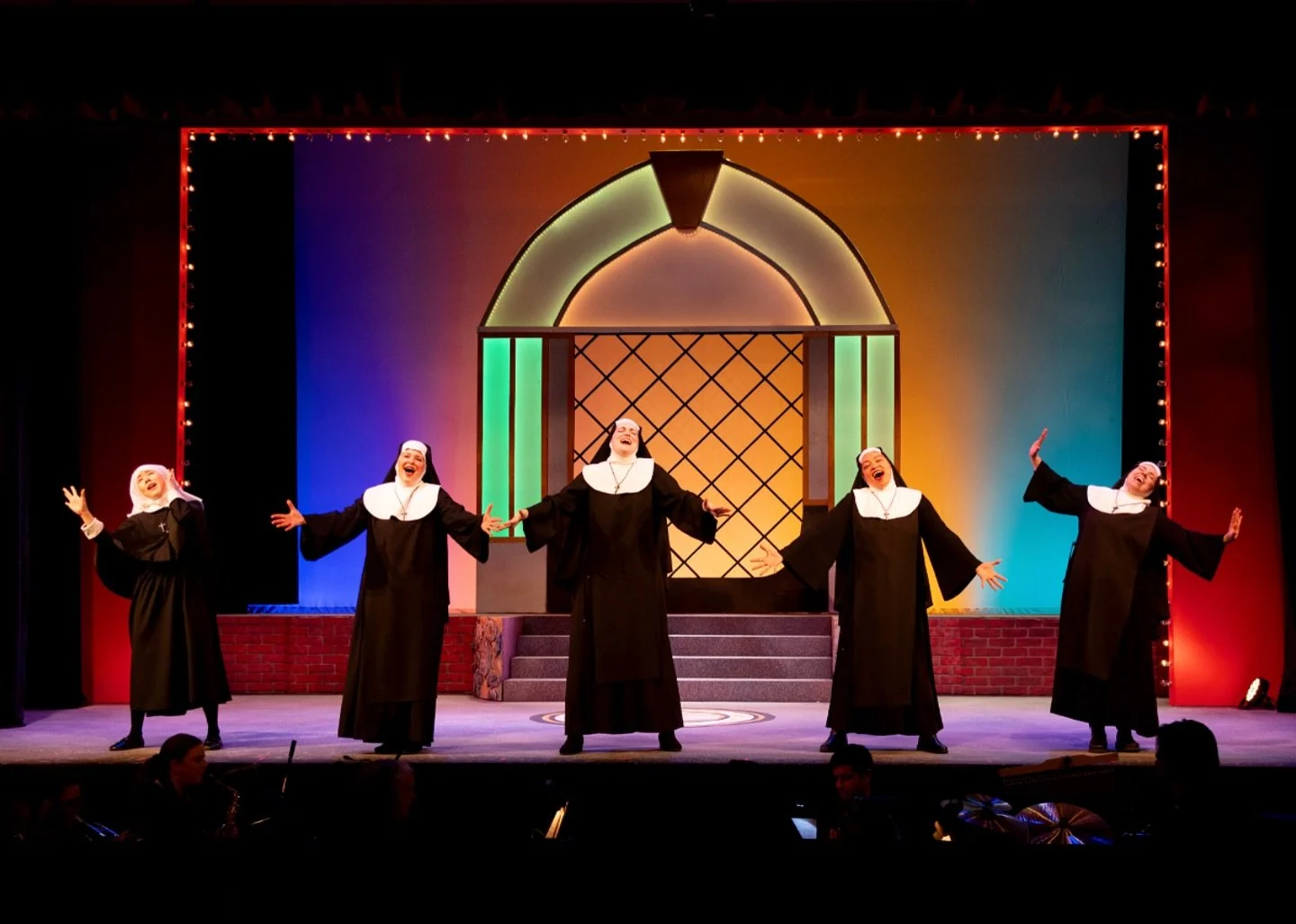Behtab Behseta's one-woman show at the STAND Festival depicts growth and resilience in the aftermath of trauma
The performer and Blackout Art Society’s artistic director Amir Hosseini speak to the festival’s origins and the importance of uplifting immigrant artists
Amir Hosseini.
Behtab Behseta.
Blackout Art Society presents the STAND Festival from November 2 to 12, including Behtab Behseta’s She Planted, You Watered, and I Grow on November 10 from 7:30 pm to 8:30 pm at the Presentation House Theatre
COPING WITH, and growing from, intergenerational trauma forms the basis of Behtab Behseta’s one-woman show She Planted, You Watered, and I Grow.
The semi-autobiographical theatre piece is premiering in its finished form at Blackout Art Society’s STAND Festival, where a 30-minute pilot version first made an appearance last year. Behseta developed the work with the help of mentor Derek Chan, managing artistic director of Vancouver Asian Canadian Theatre, into a personal exploration of a young woman’s migration to Canada and how she navigates relationships.
This year, Behseta is working solo on She Planted, You Watered, and I Grow, which has now flourished into a full 50-minute piece. Its title stems from the evolution of intergenerational trauma, she says, and how growth is ultimately possible.
“Maybe your grandma had this trauma in her, so the trauma was planted in her,” Behseta tells Stir. “And your mom grew that, she watered that. And now you are living. You are growing with this trauma. But also, it’s the other way around. You are able to show resilience. You can plant that resilience, you can water that, and then you can grow and become a strong person that has moved away from a traumatic experience and is coping, but also thriving.”
Now in its third year, the STAND Festival—an acronym for Strength Through Art Network Diversity—centres and celebrates immigrant and refugee artists, providing them with a platform to showcase their stories. Performances take place across multiple disciplines, including theatre, dance, and music, highlighting both emerging and established artists.
Breaking into the theatre scene in a new country is a feat that often proves difficult for immigrant artists, says Blackout Art Society’s artistic director Amir Hosseini. He experienced that firsthand when he moved to Canada from Iran in 2010.
“It took around five years for me to find out how I have to continue as an artist here in Canada,” says Hosseini, whose background is in directing film and theatre. “I came here as an artist. But there are kind of crucial moments in my life after immigration that I, at the time, gave up my dream of being an artist because of the life situation. And I think that that’s the same story for all immigrants. But it gets more complicated for immigrant artists, because it is very, very, very tough to find their way here in Canada, so it’s very easy to give up and go for a survival job. And I think that if we as immigrant artists could support each other, there is a chance that we could continue as artists and not go for survival jobs or things that are not related to our artistic dreams.”
Hosseini was a founding member of Blackout Theatre in 2012, when a group of Iranian artists came together to perform theatre pieces in Farsi for the Persian community. The organization built up a fan base over a five-year period, before deciding in 2017 that it was time for a rebrand. Now operating as the nonprofit Blackout Art Society, the company performs shows that focus on immigrant stories, working mainly in English to reach a wider audience.
The idea for the STAND Festival came about in 2019, when Blackout Art Society was artist-in-residence at the Presentation House Theatre. Kim Selody, artistic director at that venue, was on board with the concept—but it came to an abrupt halt when the pandemic hit. The first edition of the STAND Festival launched in 2021, as a fully online five-day showcase. Last year marked a near-complete return to in-person performances at Presentation House, taking a huge leap forward in terms of audience reach.
This year, with the help of federal and provincial funding, the STAND Festival features 15 performances and seven workshops held across three in-person venues: the inaugural Presentation House Theatre, the Annex, and the Scotiabank Dance Centre.
She Planted, You Watered, and I Grow.
Behseta first connected with Soha Sanojou, the STAND Festival’s executive producer, through her involvement with the Persian theatre community. After moving to Canada from Iran with her family in 2011 at age 17, Behseta started out performing plays in Farsi as a hobby. During the pandemic, she began conceptualizing She Planted, You Watered, and I Grow, and it quickly became important for her to take the leap in creating the show.
“It’s quite rocky,” Behseta says of her relationship to Iran, which is a central part of the piece. “A big portion of this story is the shame, the survival guilt, of being safe when your home country is falling apart. So for me, being from Iran, we have always had political issues in our country. But in the last, I would say, 10 to 15 years, we’ve been able to voice it through media. And then since the Woman, Life, Freedom movement that started last September, it has been quite difficult to be here, be safe, but also try to be part of the change. So it’s a bittersweet thing.”
Another important aspect of the show is that it talks about therapy, which Behseta notes is still surrounded by stigma for many folks coming from Eastern countries. It’s realistic and valid, she says, for a person who is struggling with mental health to seek out advice from a third party, and medication if needed, in the face of trauma.
While there are glimpses of her mother and therapist (both played by Behseta) through video projections, the audience truly gets to hear the main character’s side of the story without outside interference.
“We definitely move through denial,” Behseta says of the emotional journey in She Planted, You Watered, and I Grow. “We see a lot of stillness, a lot of rotting. We see moments of breakdown, which is mentioned as a disclaimer in the show, that you will see this character having a mental breakdown. And at the end, we see acceptance. She accepts the situation. She accepts her relationship, and her shortcomings, and her mental struggles.”
The STAND Festival has been a vital part of that acceptance and self-discovery for Behseta. Ultimately, agrees Hosseini, that is the festival’s purpose—to create a hub for immigrant artists to help each other along their journeys, in both art and life.
“We have so much resilience in us,” Behseta says, “and we are able to live through so much trauma and come out of it stronger. I don’t know if there is healing at this point for the things that are happening in my country, but I’m able to cope with it better. And I feel a tiny bit less overwhelmed when I’m able to tell my story in a way that people can hear it and be part of that journey as well.”















